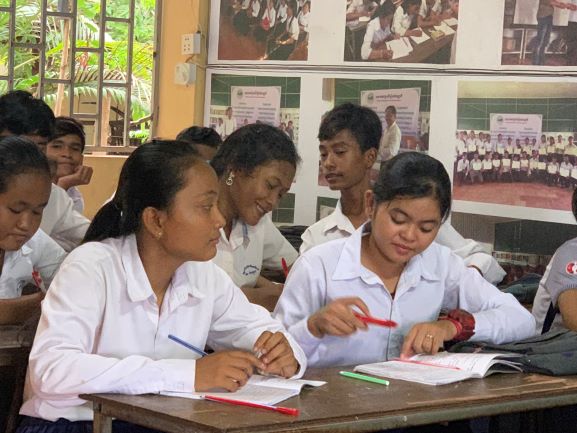
The program started in January 2011 to provide the low-income adolescents with English Access Micro-scholarship and its objective is to improve their English knowledge that will be used for various purposes when reaching the university. This project was financially supported by US Embassy to Cambodia for the period of 2 years. Only 20 or 25 low-income adolescents were selected to attend the program. The students were allowed to learn free of charge and even provided with learning materials such as note-books, text-books, pens, pencils and transport means. This program received the funding from the U.S. Embassy for six years from which around 70 students from both lower and upper secondary schools benefited through pre-test taken to measure the level of their English knowledge. The New Headway textbooks were used together with other instructional documents such as English Grammar Books, English Story You Tube, English Conversation You Tube, etc. The students were required to take monthly, semestral and annual tests. Besides English study, other activities were included into the program such as social work, awareness on morality, decency and narcotic drugs, foreign scholarship, youth network, short course training etc. Currently, this program hasn’t been sponsored by the Embassy any more, but it is still operating under KAD’s support. KAD implemented this program because currently, in Cambodia English language is very important to find a good job in line with current market demands. In rural areas, children rarely get access to English education because most of them are poor and English classes are rarely opened there. That’s why, KAD initiated this program in the remote areas of Kampong Speu province. As a result, up to now, some students who graduated from this program have good jobs; some are studying different majors at the universities and the rest are still at upper secondary school. In response to the KAD’s efforts, they always involve themselves in their community development; for instance, they invest their time, knowledge and experience to raise funds to help fix village roads and to buy food for the elderly people and school kits for poor orphans; they help disseminate health issues to the communities and share their experience with local youth.